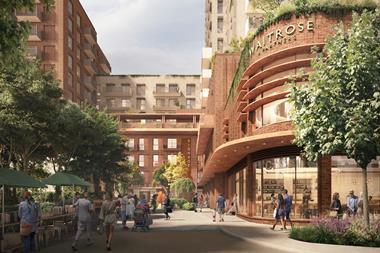There are some turds you cannot polish, however skilled you are in that department. The Brexit deal is one of them.

Others, however, can be buffed to a high shine and in some instances, on closer inspection, are revealed not to be turds at all – but merely in deep doo-doo that with a little effort can be cleaned off.
Could this be true of the UK’s high streets?
For all the talk of their death and Mike Ashley’s warning this week that they need a “massive electric shock” (at this point, you should probably put the image of poo out of your mind), there are a surprising number of players piling into the pre-resuscitation retail sector at the moment.
As we reveal in this issue, investment manager Trophaeum Asset Management has turned on a £10bn TAP, aka Trophaeum Asset Partners, targeting high-end, luxury retail primarily in London, Paris and Milan. Now admittedly, this has historically been a resilient subsector, but that is quite a statement of intent given the wider retail sector’s woes at the moment – and goes to show that neither these woes nor Brexit are enough to put investors (in this instance, institutions, sovereign wealth funds and high-net-worth individuals) off the UK retail sector.
In fact, they are part of the reason they are interested in it in the first place, because such challenges throw up opportunities that did not exist before. They aren’t the only ones looking to deploy capital in high-end retail.
Indeed, if radical action is not taken to rescue other parts of the retail market, that is all we might end up with, warned Ashley in characteristically colourful language. “It’s just going to die and you’re going to be left with Oxford and Bond Street. Outside London, it’s going to be a ghost town.”

Not everyone has such a bleak outlook. Some are actively seeking out more challenging locations, adopting not dissimilar criteria to TAP in that they are only interested in the right assets at the right price with the potential to accommodate the right – not necessarily retail – occupier line-ups.
Take Praxis, which is targeting the opposite end of the retail spectrum to TAP: the secondary shopping centre market. Now, there are some steaming turds in this sector, but Praxis is looking to sniff out the opportunities among them, usually where it sees a “dislocation in pricing” and a retail line-up that is relatively online-proof – ie that sells goods too cheap for online or that you can’t buy online.
Another retailer that scents opportunity is Poundstretcher, which is planning to almost double the size of its estate from 433 stores to 800 by mid-2022, by snapping up stores vacated or being offloaded by struggling retailers, including failed former rival Poundworld.
That they are all making counter-intuitive plays in a supposedly moribund market suggests that parts of the retail sector at least could be responsive to any electric shocks administered. Other parts may require a more radical, non-retail solution. On this very page a few weeks ago, I suggested that retailers and landlords should consider reconfiguring redundant retail space into offices, and lo, it emerges that L&G is planning to do just that with its House of Fraser store in Birmingham.
If the death of the high street is to be averted, Ashley is right: radical action is needed – as is a radical rethink of the high street itself.






























No comments yet